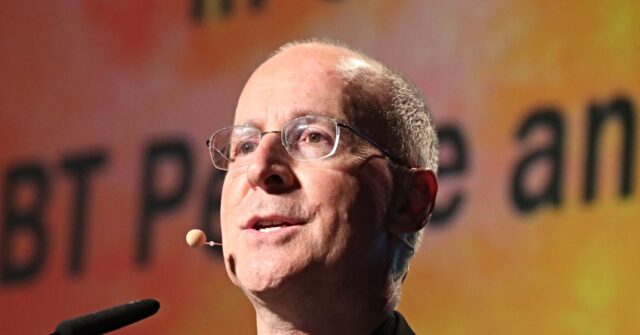ROME — Jesuit Father James Martin asserted Tuesday that President Donald Trump is not “pro-life,” following the latter’s restoration of the death penalty on the federal level.
“Enough about being ‘pro life,’” Father Martin wrote on X (formerly Twitter), in response to an Associated Press (AP) post declaring Trump had signed “a sweeping execution [sic] order on the death penalty, directing the attorney general to ‘take all necessary and lawful action’ to ensure that states have enough lethal injection drugs to carry out executions.”
In his executive order, Trump stated capital punishment is an essential tool for deterring and punishing those who would commit the most heinous crimes and acts of lethal violence against American citizens.”
“Before, during, and after the founding of the United States, our cities, States, and country have continuously relied upon capital punishment as the ultimate deterrent and only proper punishment for the vilest crimes,” he said.
In 2022, Springfield Bishop Thomas Paprocki public corrected Father Martin for his assertion that pro-abortion Catholic politicians have the right to receive Holy Communion.
“Father James Martin contradicts basic Catholic moral principles and theology in his case against denying communion to those who persist in manifest, grave sin,” Bishop Paprocki wrote in a brief essay in the Wall Street Journal (WSJ).
“Jesus broke bread with sinners, but he called them to conversion,” declared Paprocki, who is also a Canon lawyer. “He didn’t leave them in sin. He required that they choose between following him and rejecting his call.”
In a separate article, the bishop noted that one of the issues frequently proposed as morally equivalent to abortion is the death penalty.
“But capital punishment is not in the same moral category as abortion,” Paprocki wrote. “Whereas abortion is an intrinsic evil, the death penalty has been called ‘inadmissible’ by Pope Francis — a different moral judgment, reflecting a kind of prudential judgment about the penalty’s efficacy.”
In his 1995 encyclical letter Evangelium Vitae, Pope John Paul II recommended that political leaders should prefer “bloodless means” of punishment when they are “sufficient to defend human lives against an aggressor and to protect public order and the safety of persons.”
At the same time, he drew a clear distinction between the punishment of the guilty and the absolute right to life of the innocent.
Great care must be taken to respect every life, even that of criminals and unjust aggressors, he wrote, but “the commandment ‘You shall not kill’ has absolute value when it refers to the innocent person.”
The “direct and voluntary killing of an innocent human being,” such as in the case of abortion and euthanasia, “is always gravely immoral,” he declared.
Cardinal Joseph Ratzinger – who would later become Pope Benedict XVI – wrote in 2004: “Not all moral issues have the same moral weight as abortion and euthanasia,” and contrasted these issues with capital punishment.
“There may be a legitimate diversity of opinion even among Catholics about waging war and applying the death penalty, but not however with regard to abortion and euthanasia,” the future pope stated.
In that same memorandum, Ratzinger wrote that “if a Catholic were to be at odds with the Holy Father on the application of capital punishment or on the decision to wage war, he would not for that reason be considered unworthy to present himself to receive Holy Communion,” which is not the case regarding abortion or euthanasia.
Pope Francis has declared capital punishment to be “inadmissible” and “contrary to the gospel.”
Importantly, however, the pope has never claimed that capital punishment is intrinsically evil, like abortion or euthanasia, which would indeed be a direct contradiction of past teachings.
Doctors of the Church, from Saint Ambrose to Augustine to Thomas Aquinas to Robert Bellarmine to Alphonsus Liguori all taught the moral legitimacy of capital punishment.
As a sovereign territory, the Vatican City State only abolished capital punishment in 1969 and for nearly all of the Church’s history the death penalty was accepted as a legitimate form of punishment for grave offenses.
Over the centuries, hundreds of criminals were executed in the Papal States under the government of the popes.
Read the full article here


